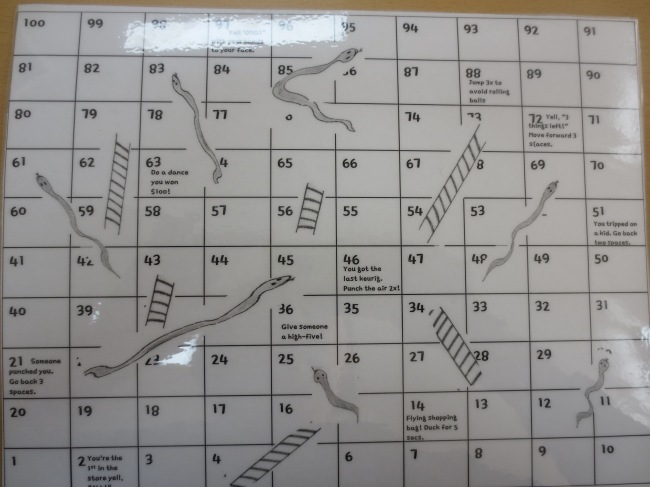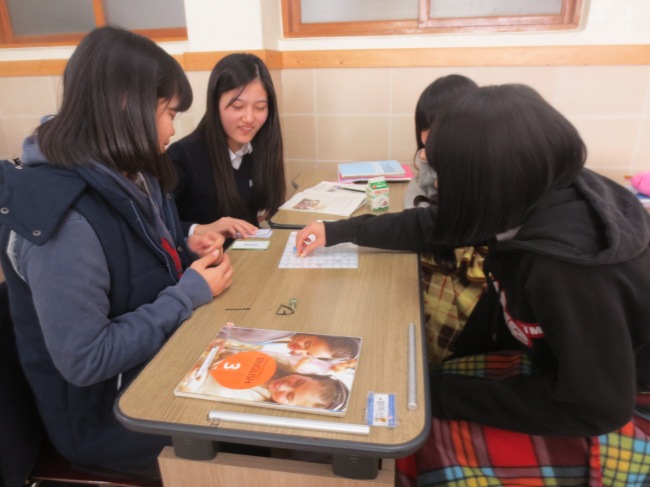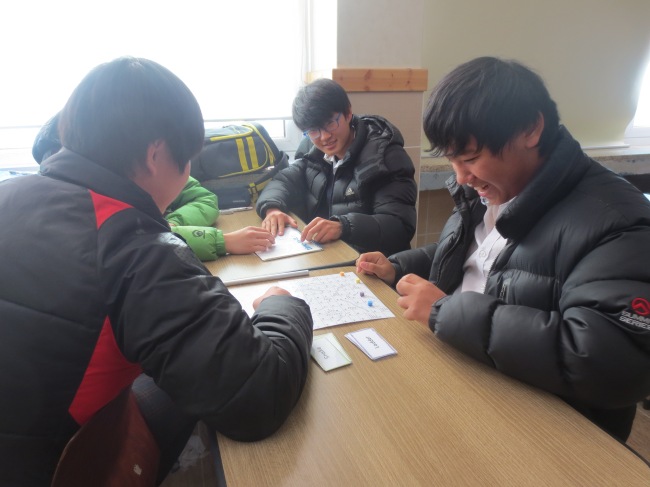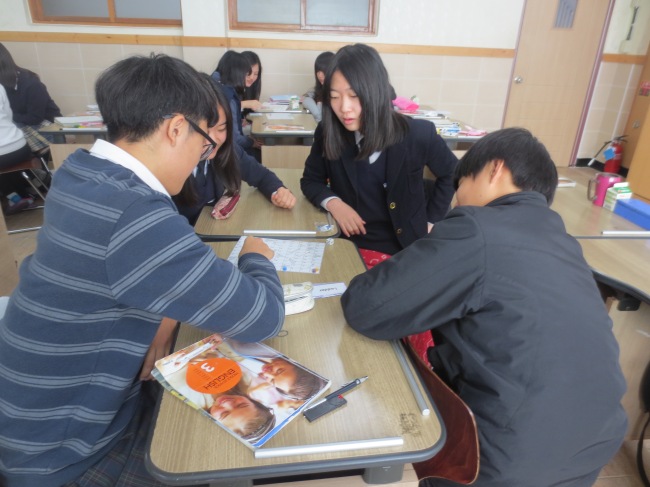I’m not known as the teacher that plays games. Although many ESL teachers play lots of games and incorporate them into the curriculum, I’m not one of them. I don’t like powerpoint games because I don’t like how everyone has to stare at the screen to be involved, which there are bound to be students who will not do anything but sit and talk to other students. Besides the fact, I have no idea how to work a lot of the powerpoint games. I’m not that saavy with powerpoint so it is more of a headache than a help to me. I like old fashioned games where you have to interact with another person and actually speak to each other. So I finally decided we will play snakes and ladders.
There are plenty of free game templates out there, but I feel it is best to make your own resources. So I made mine from scratch, it isn’t the best and looks a little silly, but it works. It is a template I can change at will and for now I used it to incorporate black friday. It is an unrelated subject but it is kind of a funny topic for kids. So the game rules were changed so that English is being used more. For every snake or ladder they land on they have to read a correlating sentence. If they cannot read it correctly, then they cannot go up the ladder and have to go down the snake. If they read the sentence card correctly they can go up the ladder and do not have to go down the snake. However, if they read it incorrectly they cannot go up the ladder and they go down the snake. Because the students don’t want to go down the snake a lot of struggling readers try harder to read it. And the best part is that they are practicing English.
Snakes and ladders is an easy game, however, elements need to be added to make it a useful language activity. Reading sentences is not that fun, even if they are interesting. Some example sentences are:
I got a free coffee!
I hit him in the face with my shopping bag.
I just got pushed into the stuffed animals.
The ipad is soldout!

The sentences aren’t perfect, but they are useful for the game. To make it more amusing, I added some commands to the game board. Such as give someone a high-five, jump 3x to avoid rolling balls, do a dance you won $100, and yell “omg!”, with your hands to your face. These added words to the game boards give the other students a good laugh and add amusement to the game. Considering that most students played it pretty well made me really happy.
Even though our students call us ‘teacher’ and we do ‘teach’ them English, many of us are not qualified teachers. Meaning we didn’t go to school to be teachers and we don’t have extensive training, it is more of on the job training. However, there are many people who do come over as teachers that were teachers in their home countries or have their CELTA or DELTA qualifications. So compared to them becoming a good teacher is a learning process. The kids don’t always like what you teach, they aren’t always going to listen, and you may not be able to help every student succeed. But that is a learning curve that comes with the territory. If I had to plot myself on a graph of where I stand as a teacher I would put myself slightly higher than the starting point, my kids like me, but they might not like my lessons. I’m okay with that. As I teach and create more lessons the more I learn about myself and class dynamics. The students in every class are different, what works for some won’t work for others. I know I am not a good teacher yet. That is something I can work towards the more I teach and grow as a person the better I will become. I still believe an education isn’t all games and fun, and it might vary from what others think. But if I think of my favorite classes and teachers we rarely played games, we did a lot of work and projects, but it was the teacher’s personality that made the topic interesting. It was great to play games in school, but a lot of times the new knowledge isn’t learned. I might not be the ‘game teacher’, but I can be fun when I want to have fun with the kids.



